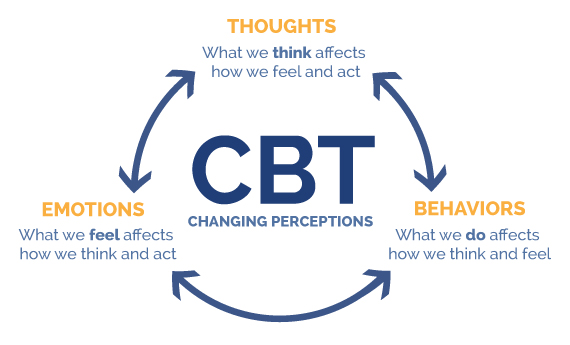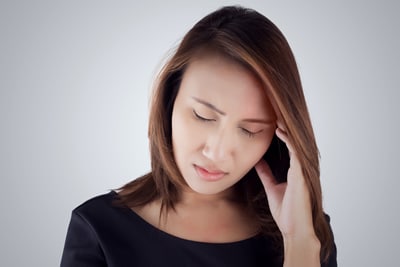Checking Out Different Strategies in Counselling for Anxiety Disorder for Enduring Adjustment
When tackling stress and anxiety conditions, it's necessary to check out a selection of therapy strategies. Each technique supplies unique insights and devices to help you manage your signs and symptoms successfully. You could discover that incorporating techniques can generate the very best outcomes. However, comprehending the nuances of these techniques is essential to fostering long lasting change. What if the ideal mix could release a new level of psychological wellness for you?
Comprehending Anxiousness Conditions: A Brief Summary
Anxiousness disorders, which affect numerous people worldwide, can substantially impact day-to-day live. You may experience frustrating feelings of anxiety or worry that appear uncontrollable. These sensations can bring about physical symptoms like an auto racing heart, sweating, or perhaps lightheadedness. Typical types of stress and anxiety problems consist of generalised stress and anxiety condition, panic attack, and social anxiety problem. Each has special indications, but they all share a propensity to disrupt your regular and relationships.Understanding the origin causes of your anxiety is vital. It may stem from genes, mind chemistry, or life experiences. Recognizing your triggers can help you handle your actions better. It's essential to bear in mind that you're not alone in this battle. Many individuals deal with similar obstacles, and seeking assistance is a strong action toward feeling better. By finding out about anxiousness problems, you're currently on the path to understanding and handling your condition a lot more successfully.
Cognitive-Behavioral Treatment: Challenging Adverse Idea Patterns
In Cognitive-Behavioral Therapy, you'll start by recognizing the adverse thought causes that contribute to your stress and anxiety. When you recognize these ideas, you'll service replacing them with more positive choices. Together, you'll develop effective coping approaches to aid manage your anxiety in daily scenarios.
Recognizing Unfavorable Idea Triggers

When you come across moments of distress, identifying the specific triggers behind your adverse thoughts can be vital in managing stress and anxiety. Start by taking note of circumstances that prompt feelings of fear or worry. Is it a crowded space, a forthcoming target date, or a conversation with specific individuals? Write down these instances in a journal. This will certainly assist you identify patterns in your reasoning. Notice physical sensations that accompany your adverse ideas, like an auto racing heart or tightness in your breast. By identifying these triggers, you get understanding into what's fueling your stress and anxiety. Recognizing these connections is the initial action in testing those ideas and ultimately reclaiming control over your psychological reactions.
Replacing Ideas With Positives
Challenging unfavorable thought patterns is an essential action in transforming your mindset and reducing stress and anxiety. You might commonly locate yourself trapped in cycles of self-doubt or devastating thinking. Rather of allowing these ideas determine your sensations, technique changing them with favorable affirmations or realistic alternatives. As an example, when you assume, "I can not handle this," shift it to, "I can take care of challenges one action at once." This straightforward adjustment can greatly influence your psychological state. Regularly determining and countering these adverse ideas aids produce a healthier inner discussion. Bear in mind, it takes some time and effort, but regularly practicing this technique can result in long lasting adjustment, encouraging you to deal with anxiety with restored self-confidence and strength.
Building Coping Techniques Together
Replacing negative ideas is only the beginning of managing stress and anxiety properly. To produce long lasting modification, you require to develop coping methods that empower you. Cognitive-Behavioral Therapy (CBT) aids you identify and test those purposeless thought patterns. With each other, you and your counselor can explore just how these ideas impact your sensations and behaviors.Start by developing practical techniques, like journaling or mindfulness workouts, that enable you to confront anxiety head-on. When you encounter your concerns progressively, you'll discover to react differently.

Mindfulness and Acceptance-Based Approaches: Cultivating Present-Moment Recognition
As you navigate the intricacies of anxiousness, including mindfulness and acceptance-based strategies can considerably enhance your capability to grow present-moment understanding. By concentrating on the present moment, you'll discover that you can observe your ideas and feelings without judgment (Counseling services for anxiety). This practice helps you acknowledge your anxiousness without really feeling overwhelmed by it.Engaging in mindfulness exercises, such as deep breathing, body scans, or directed meditations, permits you to ground on your own in your current experience. Acceptance-based methods urge you to welcome your emotions as opposed to battle versus them. When you approve your feelings, they lose their power over you.Incorporating these techniques into your daily regimen can transform how you respond to stress and anxiety. You'll develop strength and learn to navigate stressful circumstances with better simplicity. Eventually, cultivating present-moment awareness lays the structure for long lasting change, equipping you to lead a more fulfilling life
Exposure Therapy: Challenging Worries Progressively
Exposure therapy assists you challenge your concerns in a progressive way, making it less frustrating. You'll learn methods to face anxiety-provoking situations step by action, while additionally constructing coping methods to manage your responses. This technique encourages you to take control and minimize anxiety with time.
Progressive Exposure Techniques

When encountering stress and anxiety, slowly facing your fears can be a powerful method to reclaim control. This strategy, understood as progressive direct exposure, includes gradually subjecting on your own to the scenarios or items that trigger your anxiousness. Begin with much less daunting circumstances and progressively function your means up to more difficult ones. As an example, if you hesitate of public talking, you might begin by speaking in front of a mirror, after that advance to sharing ideas with a buddy, and at some point address a small team. Each step aids desensitize you to the fear, building your confidence over time. Keep in mind, it's important to pace on your own and commemorate small victories as you relocate through this process, strengthening your capacity to manage anxiety effectively.
Structure Coping Approaches
Structure reliable coping techniques is necessary for taking care of anxiety, especially as you confront your worries slowly - Counseling services for anxiety. One powerful approach is direct exposure therapy, where you start by facing your anxieties in a controlled way. Begin with less frightening scenarios and slowly function your means as much as even more challenging circumstances. This steady exposure aids desensitize you to anxiousness sets off, making them less overwhelming.Incorporate relaxation methods, such as deep breathing or mindfulness, to calm your mind during exposure. Track your progression, commemorating small victories along the means to increase your self-confidence. Bear in mind, it's alright to take your time; the goal isn't perfection but consistent improvement. By developing these strategies, you'll empower yourself to browse anxiousness and accept life a lot more fully
Psychodynamic Therapy: Revealing Root Reasons of Stress And Anxiety
Psychodynamic therapy checks out the unconscious mind, exposing the origin of your anxiousness. By examining your ideas, feelings, and past experiences, this technique aids you discover underlying conflicts and unresolved issues that might add to your existing anxiety. You'll collaborate with a specialist to investigate childhood experiences, connections, and emotional patterns that form your feedbacks today.As you get understanding right into these deeper layers of your subconscious, you'll start to recognize just how previous occasions influence your present habits. This understanding can result in catharsis, permitting you to refine feelings you could have suppressed.Through the restorative connection, you can additionally determine defense mechanisms that may have developed with time, using a more clear path to change. Eventually, psychodynamic therapy equips you with the devices to address your anxiousness at its core, advertising enduring change in your psychological well-being.
Integrative and Holistic Methods: Combining Strategies for Greater Effectiveness
Incorporating various therapeutic strategies can enhance your journey towards handling anxiety better. By incorporating elements from cognitive-behavioral treatment, mindfulness practices, and alternative methods, you can here produce an individualized method that resolves your unique needs. You could make use of cognitive-behavioral techniques to challenge unfavorable thought patterns while incorporating mindfulness exercises to ground on your own in the existing moment.Additionally, exploring all natural practices such as yoga or reflection can advertise leisure and lower anxiety signs and symptoms. This blend allows you to create higher self-awareness and resilience.Experimenting with these varied approaches can help you discover what resonates most with you. Keep in mind, it has to do with locating a synergy that functions, instead of adhering to a single strategy. This integrative strategy not only uses immediate relief but likewise promotes long-term abilities for managing anxiousness, equipping you to recover control over your life.
The Role of Support Equipments: Building Durability Through Link
While it might seem that taking care of anxiety is a singular journey, having a strong assistance system can play an important function in your strength. Bordering yourself with empathetic close friends, family, or support teams produces a secure area where you can honestly share your sensations and experiences. When you connect with others, you advise yourself that you're not alone in this struggle.These partnerships use support and can provide practical coping methods that have functioned for others. It's also a chance to obtain perspective; good friends can assist you see circumstances differently, lowering sensations of isolation.Moreover, emotional support cultivates a feeling of belonging, which can significantly alleviate anxiety signs. By leaning on your support system, you can develop strength and take on difficulties a lot more successfully. Bear in mind, connecting for help suggests stamina, and it can make all the difference in your trip towards taking care of anxiousness.
Regularly Asked Inquiries
What Are the Usual Signs And Symptoms of Stress And Anxiety Problems?
You could experience uneasyness, tiredness, problem focusing, irritability, muscular tissue stress, and sleep disturbances. Physical signs can consist of rapid heart beat, sweating, and trembling. Recognizing these signs early can assist you look for ideal assistance and therapy.
For How Long Does Therapy Usually Last for Anxiety Conditions?
Treatment for anxiety conditions commonly lasts anywhere from a couple of weeks to several months. It actually relies on your specific needs, progression, and the techniques your specialist uses to help you manage your anxiety efficiently.
Can Medicine Be Made Use Of Alongside Treatment for Anxiousness?
Yes, medicine can certainly be used alongside treatment for anxiousness. Incorporating both techniques usually improves therapy performance, assisting you take care of signs while discovering underlying issues with counseling (Counseling services for anxiety). Always consult your healthcare company for tailored advice
Are There Self-Help Techniques for Managing Anxiousness?
Yes, there are several self-help approaches for handling stress and anxiety. You can practice mindfulness, participate in routine exercise, keep a well balanced diet regimen, establish a routine, and make use of deep breathing methods to help in reducing anxiousness signs and symptoms properly.
How Do I Know if I Required Expert Aid for Anxiousness?
